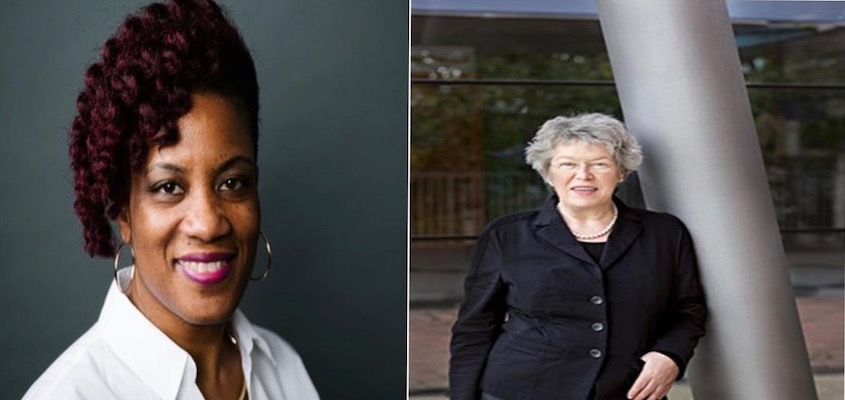
Our authors examine how white feminism became “junior partner to enslavist capitalist patriarchy,” and how do we “resist silences that limit the span of democracy?”
“How does our act of silencing “non-prototypical” Black women allow for the perpetuation of their marginalization by others and by us?”
In this series, we ask acclaimed authors to answer five questions about their book. This week’s featured authors are Julia Jordan-Zachery and Sabine Broeck . Jordan-Zachery is a Professor of Public and Community Service and director of the Black Studies Program at Providence College in Rhode Island.Her book isShadow Bodies: Black Women, Ideology, Representation, and Politics.
Broeck is Professor of American Studies at the University of Bremen, Germany.Her book is Gender and the Abjection of Blackness.
Roberto Sirvent: How can your book help BAR readers understand the current political and social climate?
Julia Jordan-Zachery:Black women are often celebrated for the herculean work they do; consider the 2017 elections in Alabama. For all the cultural, political, and economic work Black women do, we often don’t know about them because we tend not to hear Black women’s voices. Shadow Bodies brings to the center the voices of Black women. This work troubles the water a bit because it asks: how are Black women speaking about other Black women—who are they allowing to be on the agenda and who is left off? This is important to consider as it forces us to think about the notion of democracy. Using Black women’s words on HIV/AIDS, domestic violence and mental illness, Shadow Bodies exposes what often goes unsaid, the silences within the community of Black womanhood. This helps us to understand why, for example, Black transgender women are often relegated to the shadows—seen, but yet not seen. It also helps us to see that we need a #sayhername campaign that is not solely focused on how communities external to Black women choose to, or not, recognize Black women, but how Black women engage this process. This is also a book about resistance, specifically how do we resist silences that limit the span of democracy? This book is useful in this current climate as it offers a different angle for understanding and critiquing ideologies of power.
What do you hope activists and community organizers will take away from reading your book?
When we think of the Black woman’s body and representation, broadly defined, Shadow Bodies asks us to (re)examine the meaning of “community” and how our construction of such influences group rights that are shaped by the intersections of race, gender, class and sexuality. Activists and community organizers need to systematically consider how the Black female body forces us to deal with the tensions and binaries that result in our silences—especially around issues that make some uncomfortable. We have to ask ourselves, how does our act of silencing “non-prototypical” Black women allow for the perpetuation of their marginalization by others and by us? It’s the asking of these critical questions that I hope activists and community organizers will take away and allow them to inform their work for freedom and justice.
Black Agenda Report for more
